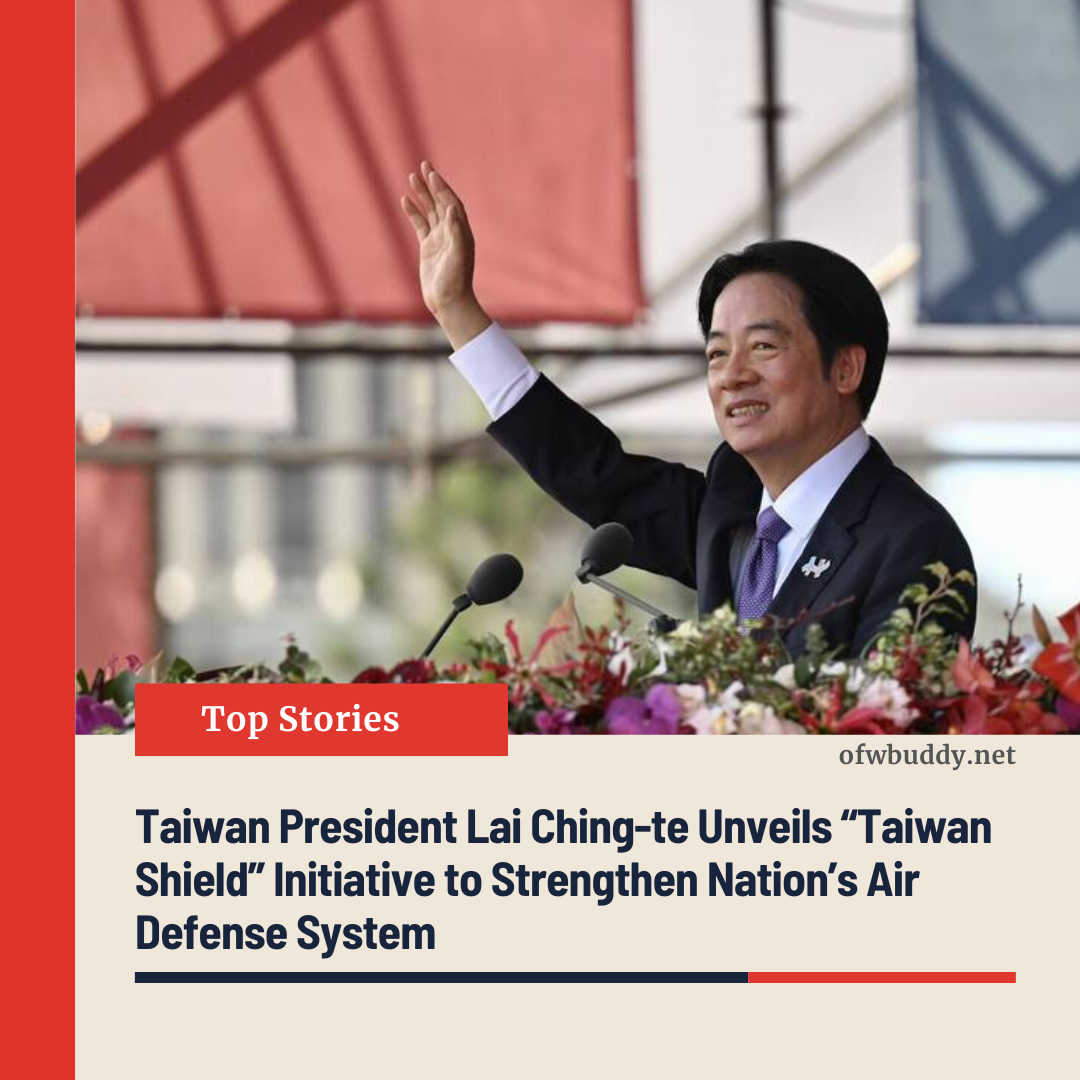TAIPEI, Taiwan — October 10, 2025 — President Lai Ching-te delivered his second National Day address today, outlining a major step forward in Taiwan’s defense and security strategy. Speaking during the Double Tenth National Day celebration, Lai announced that the government will introduce a new defense budget designed to achieve three primary goals: strengthening Taiwan’s “Taiwan Shield” (T-Dome) air defense system, integrating advanced technologies and artificial intelligence, and investing further in domestic defense innovation.
President Lai emphasized that this year marks the 80th anniversary of the end of World War II — a historical reminder that “aggression will fail, unity will prevail,” and that peace must be safeguarded through strength. He revealed that a special defense budget will be introduced before the end of 2025, with the defense allocation expected to exceed 3% of GDP next year — meeting NATO standards — and rise to 5% of GDP by 2030.
According to Lai, the increase in defense spending is driven by the need to respond to growing external threats and to accelerate the modernization of Taiwan’s defense industry. He detailed three main pillars of the new defense strategy:
-
Accelerating the development of the “Taiwan Shield” (T-Dome): Establishing a multi-layered air defense network featuring high awareness, rapid response, and effective interception to protect citizens and national infrastructure.
-
Integrating high-tech and AI systems: Building an intelligent defense network that utilizes asymmetric warfare strategies and strengthens deterrence capabilities.
-
Investing in innovative defense technologies: Partnering with advanced nations to bolster Taiwan’s defense manufacturing sector, enhance local R&D, and improve industrial resilience through a more robust domestic supply chain.
Lai underscored that Taiwan aims to become a “trusted security partner” among democratic allies, working together to safeguard freedom and democracy while countering global threats.
Beyond military preparedness, the president also highlighted efforts to fortify the country’s “whole-of-society defense resilience.” Over the past year, the government has integrated public and private sector efforts to strengthen Taiwan’s readiness in disaster response, energy, healthcare, communications, and financial systems.
Lai added that social resilience is a vital component of national defense. Last month, the government launched the “Taiwan National Security Guide,” a handbook designed to help citizens prepare for emergencies ranging from natural disasters to potential military invasions. The guide will be distributed to households nationwide to encourage collective participation in national security and self-reliance.
“Peace through strength is our unwavering commitment,” Lai said. “True strength lies not only in our military capabilities, but in the unity and resilience of our people.”

